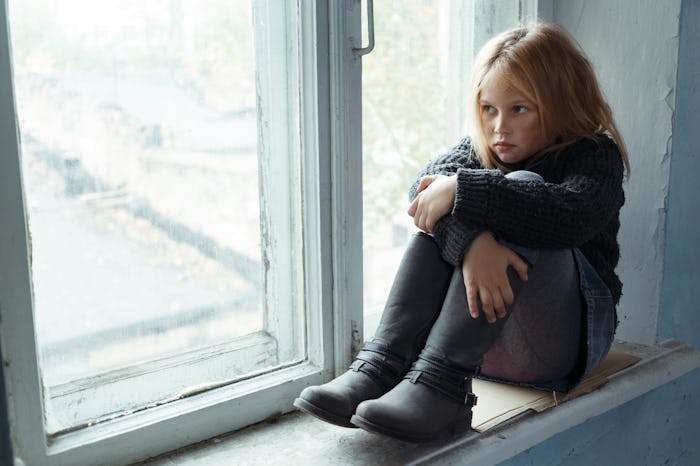Life

Can Kids Get Seasonal Affective Disorder?
When you think of depression you most often think of adults. But children can also suffer from a multitude of depression and anxiety conditions. Unfortunately, their symptoms go largely unrecognized by parents and doctors, especially if they’re on the more mild side of the spectrum. One condition that can go undetected is Seasonal Affective Disorder (SAD), which is a type of depression that follows a seasonal pattern. Because the symptoms are more intermittent than other forms of depression and SAD is most often associated with adults, many parents may be wondering can kids get seasonal affective disorder as well?
The onset of SAD usually occurs in late fall or early winter according to Web MD (although it can also occur in early spring) and is often called “winter blues." Many people get depressed during the winter time for so many external reasons: certain geographic areas get dark and snowy, the sometimes chaotic environment surrounding the holidays, and the overall sadness some might feel if they don’t have family around them during the holiday season or are missing a loved one during that time. But there are other clinical factors of SAD that may cause a child to develop the disorder too.
The actual causes of SAD are unknown at this time which can make diagnosing and treating the condition difficult. But according to the Mayo Clinic, one possible factor is that there are less hours of sunlight in the fall and winter. The decrease in sunlight may disrupt a body’s internal clock or circadian rhythm. Web MD explained that there are patterns of brain wave activity, hormone production, cell regeneration, and other biological activities that are linked to our 24 hour cycle. If light and dark patterns change, it can impact a child the same way it does an adult and possibly cause an onset of SAD.
Another related contributor may be a drop in serotonin levels. Serotonin is often called the “happy hormone.” Serotonin is a brain chemical that effects so many cells in our body both directly and indirectly and impacts our mood, appetite, sleep, sex drive, memory, learning, and temperature according to Web MD. Reduced sunlight in the fall and winter months can cause a drop in serotonin production which can trigger depression. If your child is showing changes in their behavior such as inability to complete their homework, dropping grades, or not talking or hanging out with friends as much, it might be time to talk to their doctor about the possibility of SAD.
Another possible contributor is serotonin’s right hand hormone, melatonin. You hear a lot about melatonin now as many people use it as a supplement to induce sleep. Melatonin’s nickname is the “sleep hormone.” It's a hormone made in the brain that is also regulated by light and darkness. The National Sleep Foundation explained that melatonin production is activated at night usually around 9 p.m. Generally, melatonin levels rise and kids and adults begin to feel tired and not as alert. Melatonin levels remain high for about 12 hours and wear off around 9 a.m. If there are reduced hours of sun, and more hours of darkness it can impact melatonin levels and make kids more tired, sluggish, and impact their moods.
Sufferers of SAD are encouraged to be outside in natural daylight for as long as possible every day. If that’s not possible or there is limited daylight, patients can be treated with light therapy, or phototherapy according to the Mayo Clinic. The patient is instructed to sit a few feet from a special lamp on a regular basis. In other cases, a person may be prescribed medication.
SAD is a type of depression that should not be ignored in adults and children. Considering the possibility that SAD could be impacting changes in your child’s moods and behaviors is the first step towards getting a proper diagnosis. Once you recognize that your child is showing signs of depression and in a definite seasonal pattern you can begin to work on ways to treat your child.